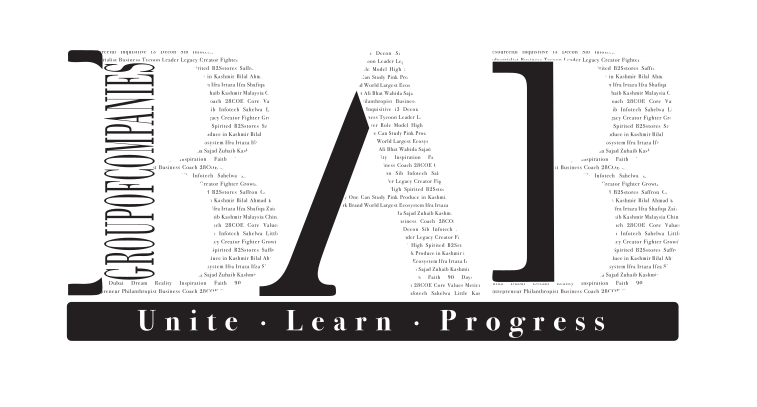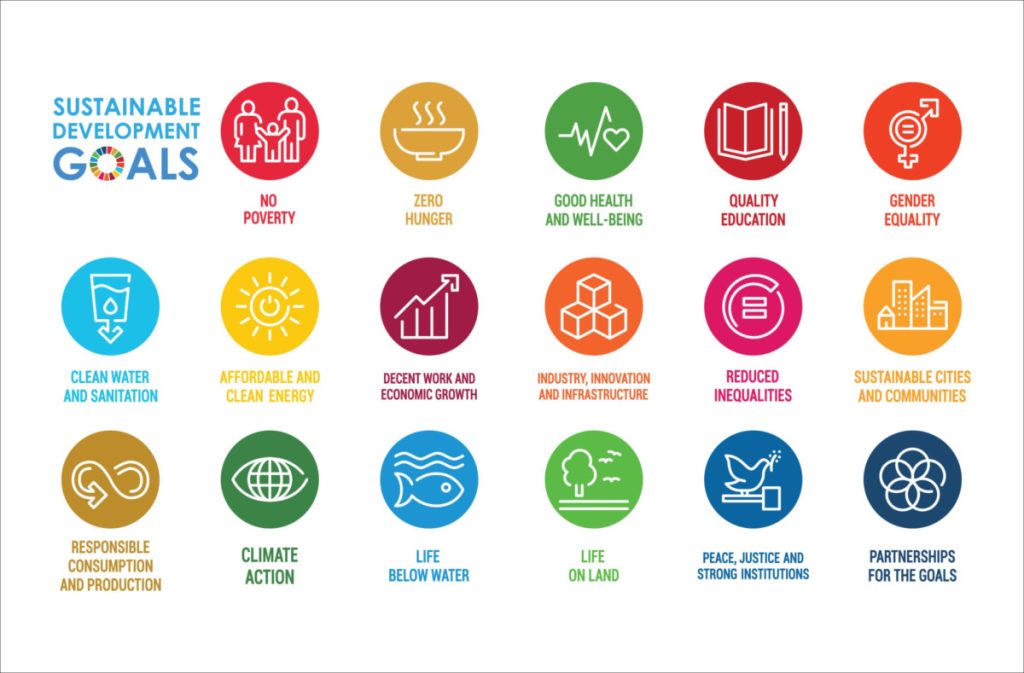As a responsible corporate entity, BAB Group Of Companies recognizes the importance of sustainability and social responsibility in driving positive change and creating a better world for future generations. The United Nations’ 17 Sustainable Development Goals (SDGs) serve as a blueprint for global action to address pressing challenges and achieve a more sustainable and equitable future. In this detailed blog, we delve into each SDG, discuss their significance, and highlight the benefits of joining the SDG movement.
Understanding the United Nations’ 17 Sustainable Development Goals (SDGs):
No Poverty (SDG 1): End poverty in all its forms everywhere by 2030, ensuring equal access to resources, opportunities, and basic necessities for all individuals and communities.
Zero Hunger (SDG 2): Achieve food security, improve nutrition, and promote sustainable agriculture to eradicate hunger and malnutrition globally.
Good Health and Well-being (SDG 3): Ensure healthy lives and promote well-being for all at all ages, focusing on access to healthcare, disease prevention, and mental health support.
Quality Education (SDG 4): Ensure inclusive and equitable quality education for all, promoting lifelong learning opportunities, literacy, and skills development.
Gender Equality (SDG 5): Achieve gender equality and empower all women and girls, promoting equal rights, opportunities, and representation in all sectors.
Clean Water and Sanitation (SDG 6): Ensure availability and sustainable management of water and sanitation for all, addressing water scarcity, pollution, and hygiene challenges.
Affordable and Clean Energy (SDG 7): Ensure access to affordable, reliable, sustainable, and modern energy for all, promoting renewable energy sources and energy efficiency.
Decent Work and Economic Growth (SDG 8): Promote inclusive and sustainable economic growth, full and productive employment, and decent work for all individuals.
Industry, Innovation, and Infrastructure (SDG 9): Build resilient infrastructure, promote inclusive and sustainable industrialization, and foster innovation and technological advancements.
Reduced Inequality (SDG 10): Reduce income inequality within and among countries, promoting social inclusion, economic empowerment, and equal opportunities for all.
Sustainable Cities and Communities (SDG 11): Make cities and human settlements inclusive, safe, resilient, and sustainable, focusing on urban planning, infrastructure, and environmental protection.
Responsible Consumption and Production (SDG 12): Ensure sustainable consumption and production patterns, promoting resource efficiency, waste reduction, and sustainable practices.
Climate Action (SDG 13): Take urgent action to combat climate change and its impacts, promoting climate resilience, mitigation strategies, and environmental conservation.
Life Below Water (SDG 14): Conserve and sustainably use the oceans, seas, and marine resources, addressing marine pollution, overfishing, and habitat degradation.
Life on Land (SDG 15): Protect, restore, and sustainably manage terrestrial ecosystems, biodiversity, and natural habitats, combating desertification, deforestation, and land degradation.
Peace, Justice, and Strong Institutions (SDG 16): Promote peaceful and inclusive societies, ensure access to justice for all, and build effective, accountable, and transparent institutions.
Partnerships for the Goals (SDG 17): Strengthen global partnerships for sustainable development, mobilize resources, and promote collaboration among governments, businesses, and civil society.
Importance of SDGs:
The SDGs are crucial for addressing global challenges, promoting social progress, protecting the planet, and fostering sustainable development. They provide a comprehensive framework for collective action, guiding governments, businesses, organizations, and individuals towards shared goals and common objectives. By aligning efforts with the SDGs, stakeholders can contribute to poverty eradication, environmental conservation, social equity, and inclusive economic growth, creating a more resilient and prosperous world for present and future generations.
Benefits of Joining the SDG Movement:
Purpose and Impact: Engaging with the SDGs gives organizations a sense of purpose and allows them to make a meaningful impact on pressing global issues.
Reputation and Branding: Commitment to the SDGs enhances corporate reputation, credibility, and brand value, attracting customers, investors, and partners who share similar values.
Innovation and Collaboration: Pursuing SDG-aligned initiatives encourages innovation, collaboration, and partnerships, leading to new opportunities, solutions, and business models.
Risk Management: Addressing SDG-related challenges helps organizations mitigate risks, adapt to changing trends, and future-proof their operations against environmental, social, and economic disruptions.
Employee Engagement: Employees are more engaged, motivated, and proud to work for organizations that prioritize sustainability, social responsibility, and ethical business practices aligned with the SDGs.
Regulatory Compliance: Many governments and regulatory bodies incorporate the SDGs into policies, regulations, and reporting frameworks, incentivizing businesses to integrate sustainability into their operations.
BAB Group Of Companies’ Commitment to SDGs:
At BAB Group Of Companies, we are fully committed to supporting and advancing the United Nations’ 17 Sustainable Development Goals. Our initiatives, strategies, and business practices are aligned with the SDGs, focusing on areas such as poverty alleviation, environmental conservation, gender equality, and community empowerment. Through partnerships, innovation, and responsible business practices, we aim to contribute positively to the achievement of the SDGs and create a sustainable future for all.
Conclusion:
The United Nations’ 17 Sustainable Development Goals provide a roadmap for global action, collective responsibility, and transformative change. BAB Group Of Companies recognizes the significance of the SDGs in driving sustainable development, social progress, and economic prosperity. By embracing the SDGs, organizations can make a positive impact, build resilience, and create a better world for present and future generations.

